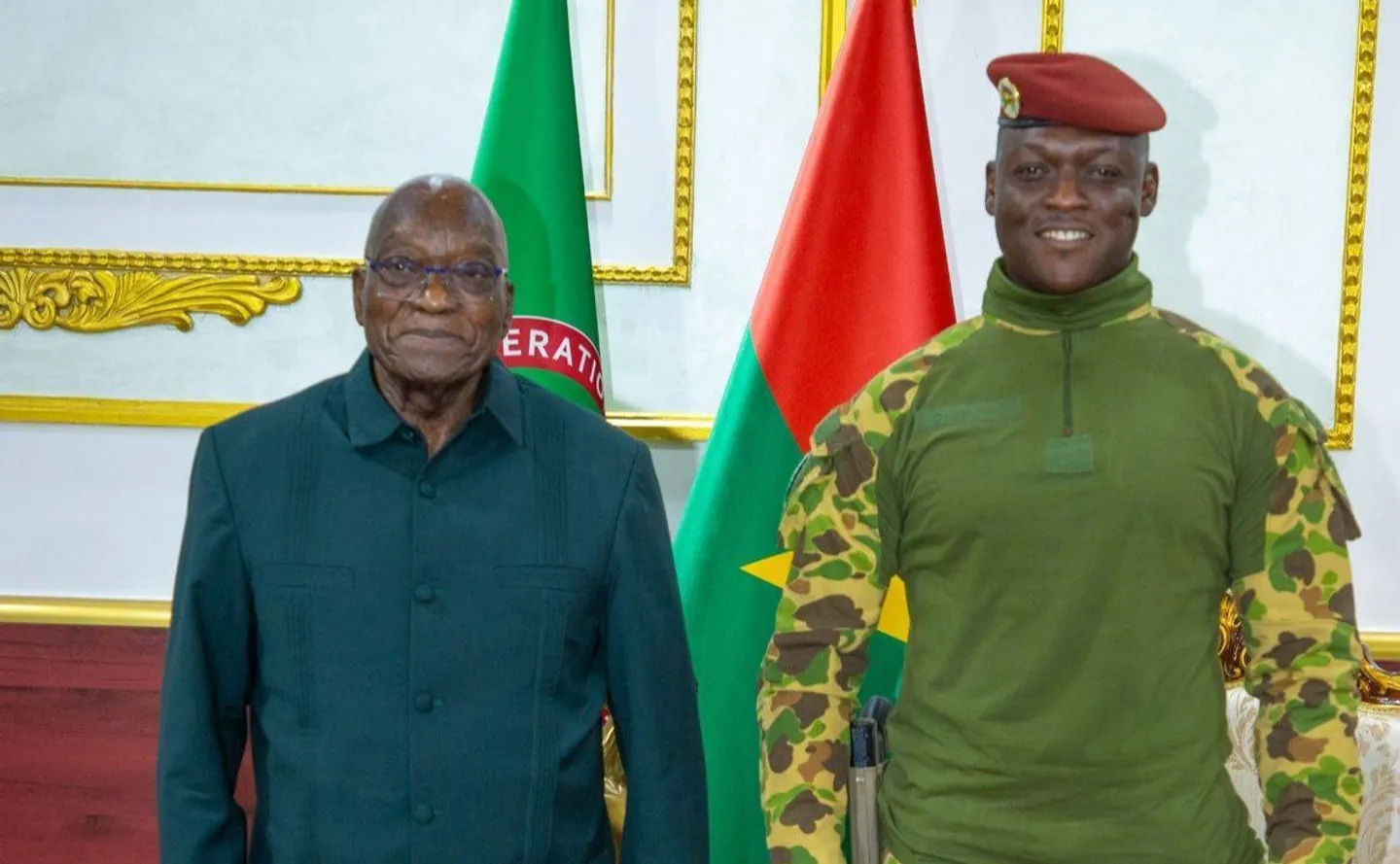A Former South African president Jacob Zuma and Burkina Faso’s leader Ibrahim Traoré met at the presidential palace for discussions that many observers regard as a signal of renewed ambition for African autonomy.
Zuma, who served as South Africa’s head of state from 2009 until 2018 and remains an influential figure in his country’s politics, met with Traoré to talk strategy and solidarity. Traoré, a young military-political leader who became interim president of Burkina Faso in 2022, has made Pan-African ideas and resistance to external dependency central to his agenda.
The two leaders discussed broad themes of economic cooperation, regional security, and what they describe as a joint push to diminish the influence of external powers in African affairs. The tone of the meeting conveyed more than diplomatic courtesy — it spoke of a shared vision of a more self-reliant continent.
In his remarks, Zuma praised Traoré’s leadership and the pursuit of a “united and self-determined Africa,” framing Burkina Faso as a potential model for other nations seeking to chart independent paths. He emphasised that Africa must reclaim its destiny not through dependence, but through solidarity, value-addition and collective strength.
Also Read: Russian Officials Prepare for Potential Nuclear Tests
Traoré in turn welcomed Zuma’s support and stressed that the meeting marked a significant moment for his government in Ouagadougou. He reaffirmed his commitment to building stronger partnerships among African nations, especially in trade, investment, and the defence realm.
Although no detailed agreement has yet been publicly released, the symbolism of the gathering itself is striking. By aligning under the banner of pan-African ideals, the two men are sending a message: that Africa’s potential lies in unity and the assertion of agency on the world stage.
Critics note that rhetoric alone will not suffice — the test will lie in whether this meeting produces concrete programmes, joint ventures, or firm regional commitments. Supporters, however, say it could mark a turning point if followed by action.
Analysts will be watching closely to see whether cooperation is deepened into operational frameworks: Will manufacturing and processing projects be launched? Will regional defence arrangements be strengthened? Will African voices be more assertively represented in global economic and diplomatic forums?



